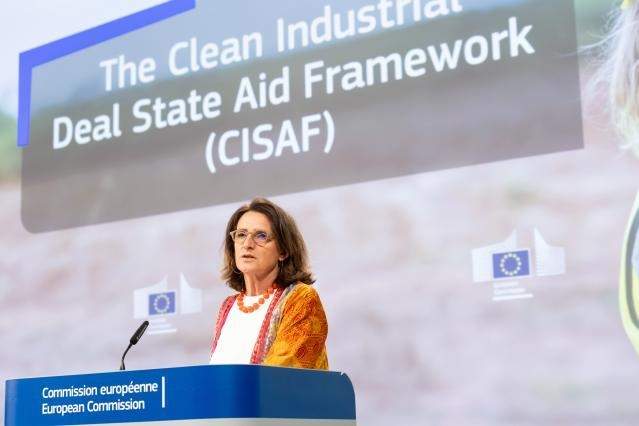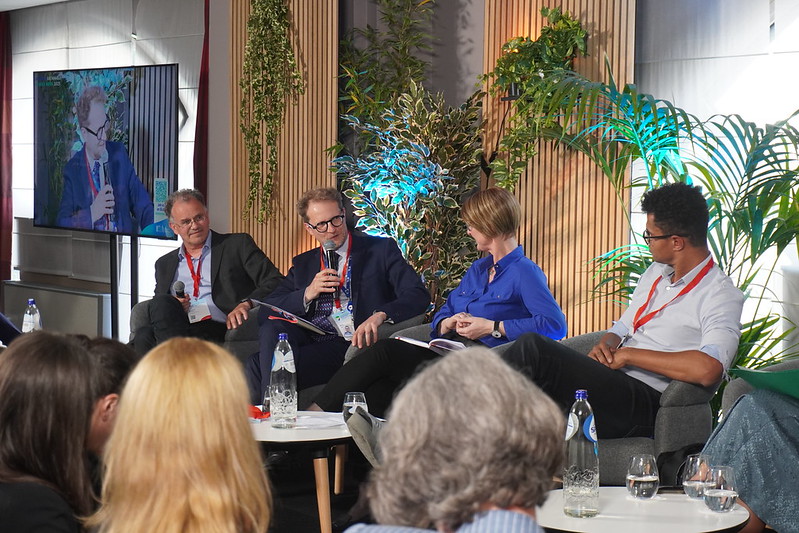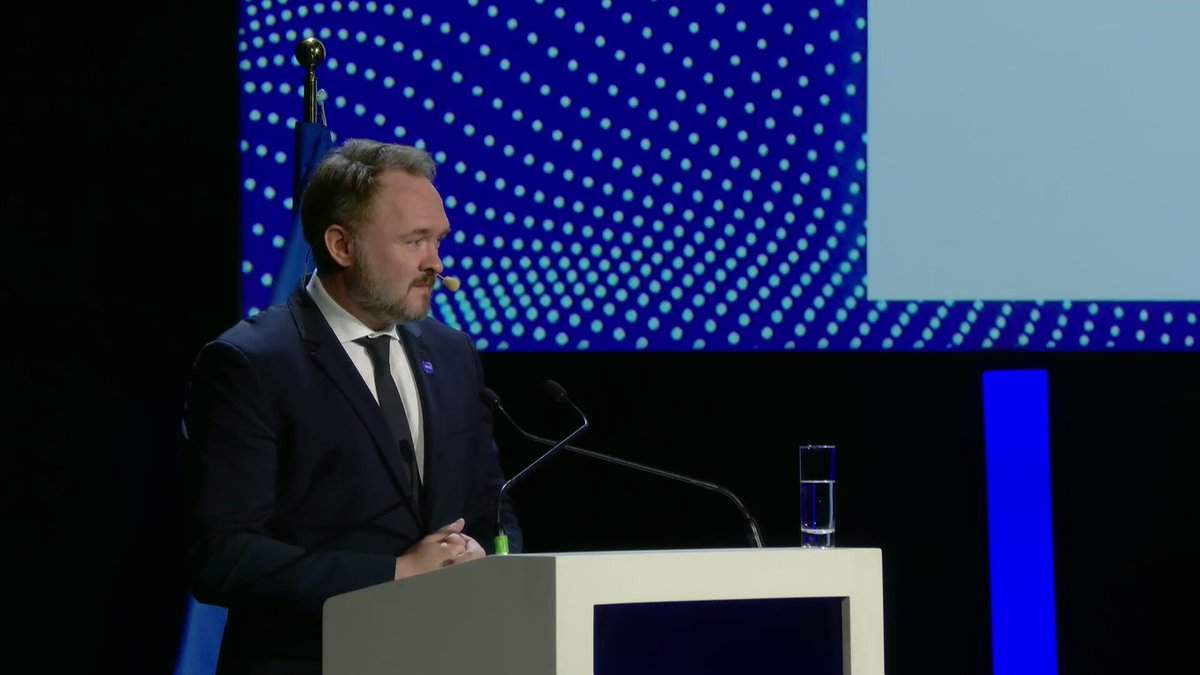DecarbCities Conference 2022 took place in Vienna and showcased how cities, as main actors in the energy transition, can define clear delivery pathways for future-proof urban heating and cooling solutions.
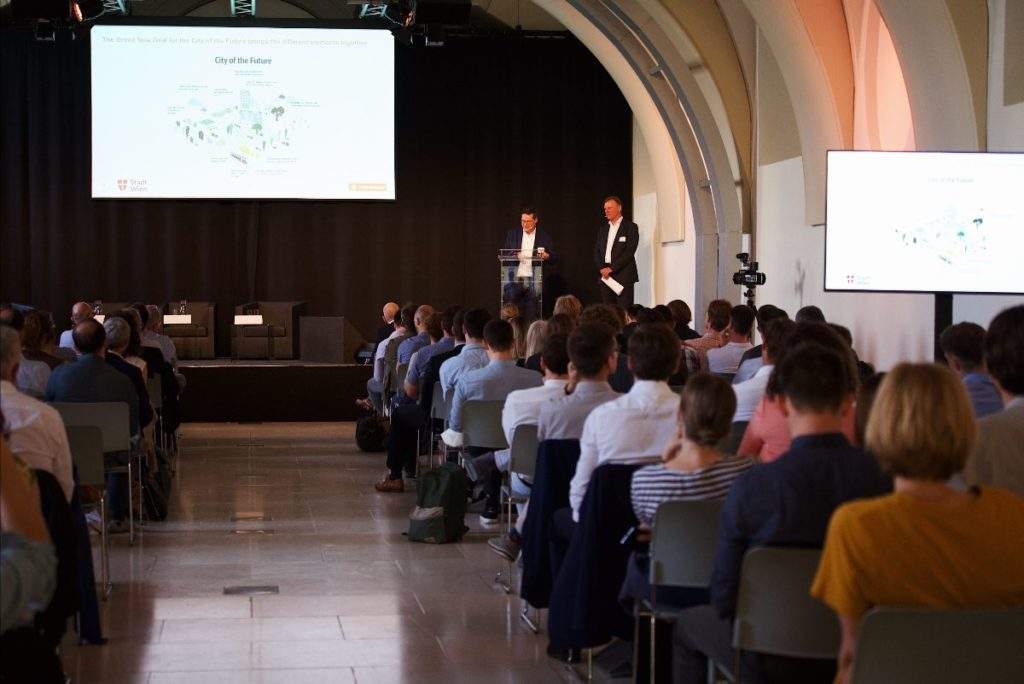
The urgency of the EU’s net-zero emission targets coincides with the recent energy crunch in Europe while setting out a clear demand for ramping up the transition in the heat sector towards a low-carbon and sustainable supply. In this respect, electrification of the heat, through technologies such as heat pumps, and other cost-effective solutions already available depending on the cities (solar thermal, geothermal energy…), are becoming more and more favourable.
Hosted by the City of Vienna, the third edition of DecarbCities Conference took place on 11-12 May and brought together industry, government, academia, legislative bodies and thought leaders from across the EU. The speakers and participants in the conference shared and accessed major learnings from the latest innovations to ensure an efficient, stable, and secure decarbonisation of cities. „Cities are not part of the problem but part of the solution. Vienna is heating up, so there is a need for urgent actions, as we want to reach climate neutrality in all sectors by 2040“, stated Jürgen Czernohorszky, Executive City Councilor for Climate, Environment, Democracy and Personnel, City of Vienna.
The main aim of DecarbCities was to fuel the ongoing debate on national and regional energy and climate plans as well as renovation strategies, as mandated by the European legislation on energy efficiency, renewable energy, and building efficiency. “This is a crucial moment in the EU energy policy and I hope that the Ukraine tragedy will push us to decarbonise more quickly”, said Ciarán Cuffe, Member of the European Parliament (Greens/EFA).
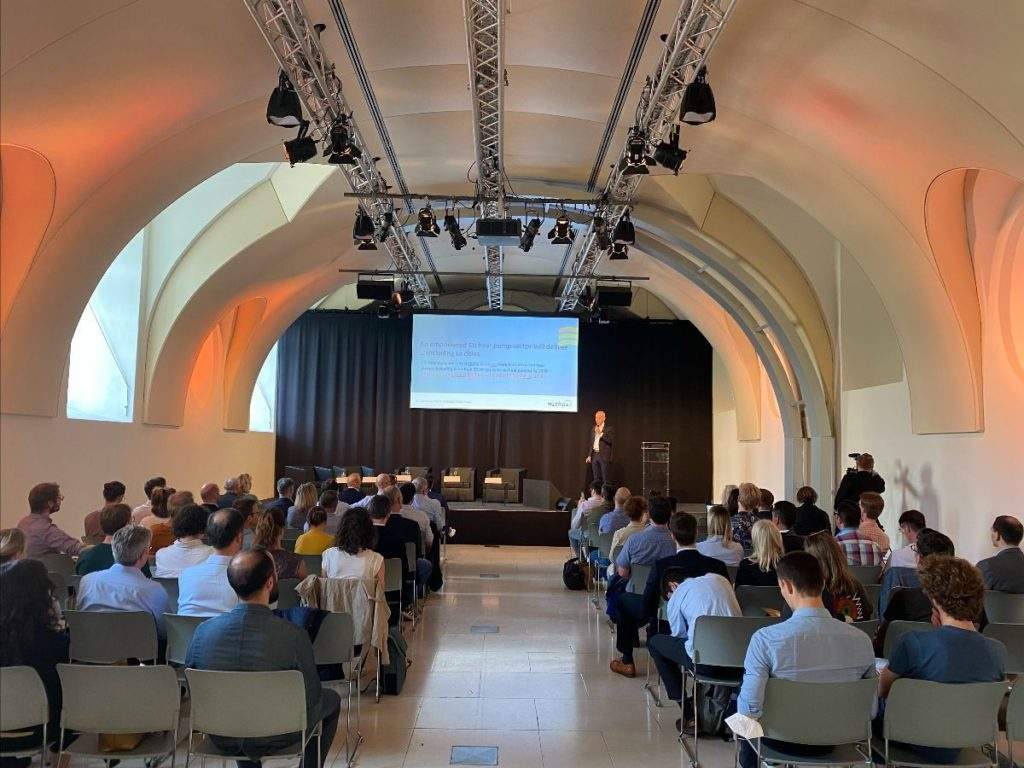
More than 200 participants were present at the MuseumsQuartier in Vienna and joined the diverse program of panel sessions and expert interventions covering technical and organizational solutions from and for cities, showing a breadth of approaches to replace existing fossil fuel-based combustion technologies with heating systems that use renewable energies and to reduce heat demand.
A special focus was given to solutions for existing buildings in the urban context, such as multi-family homes and renovation processes, as well as the need for competence in the value chain, and optimized customer journey. “Decarbonization solutions with new and better ways to heat and cool buildings with clean technologies and renewable resources exist today, that, if implemented at scale, could significantly advance our progress on climate change.”, said Jose La Loggia, President Commercial HVAC Europe, Middle East, Africa, Australia and New Zealand, Trane Technologies.
Governance requirements and frameworks were discussed in depth between European, national, and city legislators. A better alignment of the different European and national legislation should provide an enabling framework for local actors, especially cities. It is urgent to scale the transition and put forward social justice and decarbonisation over free-market considerations, which until now failed to deliver affordable and clean energy. Bernd Vogl, Head of the Energy Planning Department of Vienna stated: “Our challenge is to coordinate all the people who want to invest in renewable energies, and we need this to be affordable for everybody.“
The volatile and unpredictable gas market underlines this urgency to phase-out fossil fuels from Europe’s economy. Only a combination of a steep reduction of the energy demand and the massive introduction of diverse, local, and renewable technologies ensures energy security for all. Cities and their local actors are already mobilising citizens to reduce needs and find democratic solutions to face the constraints of limited and expensive energy. Mobilisation of all actors will be determinant to prioritise needs during the next winter, and cities can organise these local deliberations. Thomas Nowak, Secretary-General, European Heat Pump Association, concluded “There is an urgency to decarbonising cities and agency to complete this task”.
The DecarbCities conference showcased how cities can succeed in this challenge and define clear delivery pathways for future-proof urban heating and cooling solutions.
The DecarbCities Conference is jointly organized by the Energy Cities, European Heat Pump Association, City of Vienna, Urban Innovation Vienna and Wärmepumpe Austria.
Thank you to everyone who attended the conference and particpated in the debates. We would also like to thank in particular the speakers for the invaluable exchange and the sponsors Daikin, Trane (Trane technologies) and Holcim for their trust in the team and support of the event.
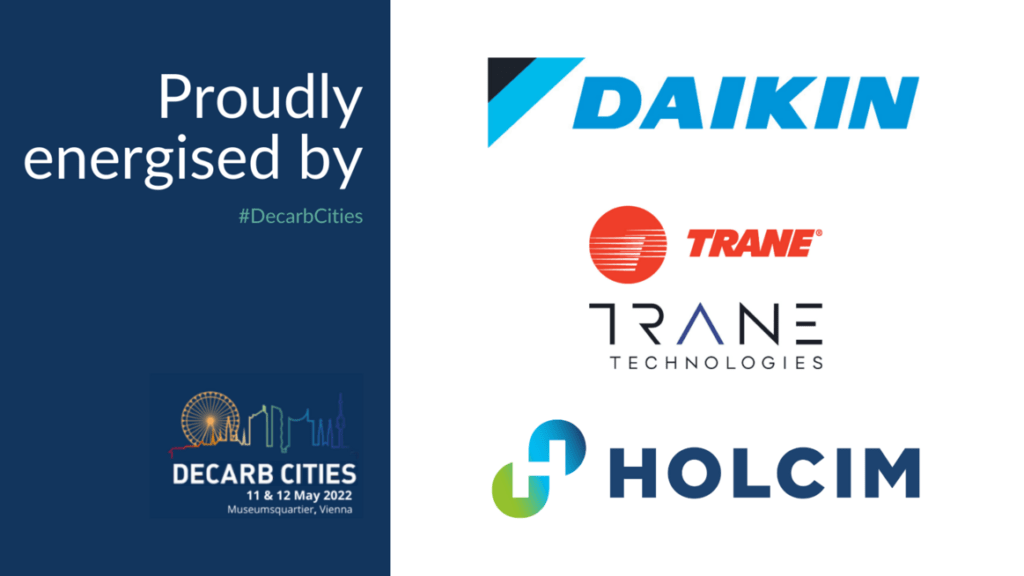
Contact details
Savina Cenuse, savina.cenuse@ehpa.org
Michael Cerveny, cerveny@urbaninnovation.at
Note to the editor
EHPA promotes awareness and deployment of heat pump technology in Europe. All activities aim at creating a market environment that facilitates a faster deployment of heat pump technology to unleash its benefits on a European level: efficient heating and cooling using renewable energy. EHPA also coordinates the Heat Pump Keymark – a European certification scheme for all heat pumps, combination heat pumps and hot water heater. For more information, please visit: https://www.ehpa.org


